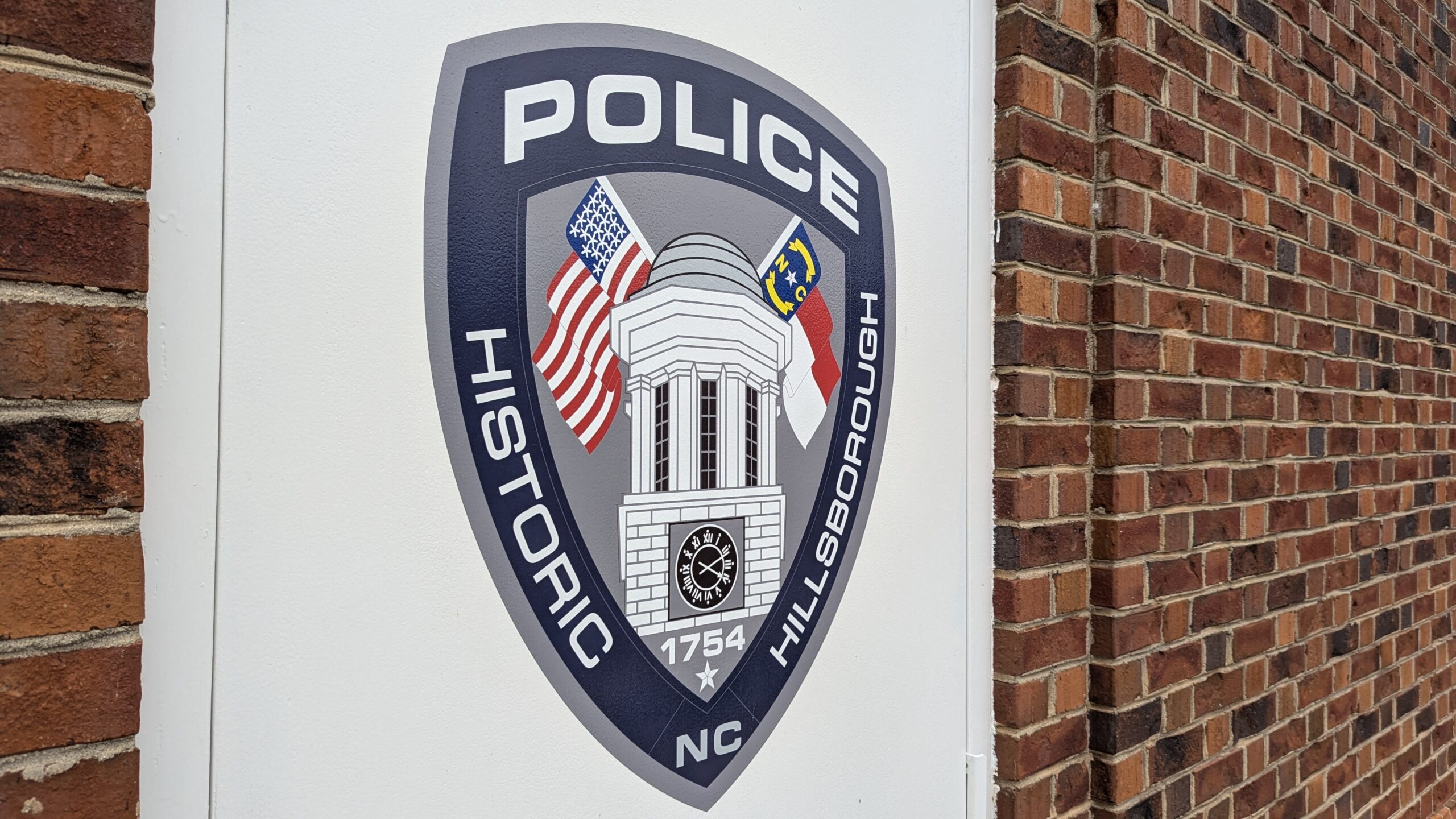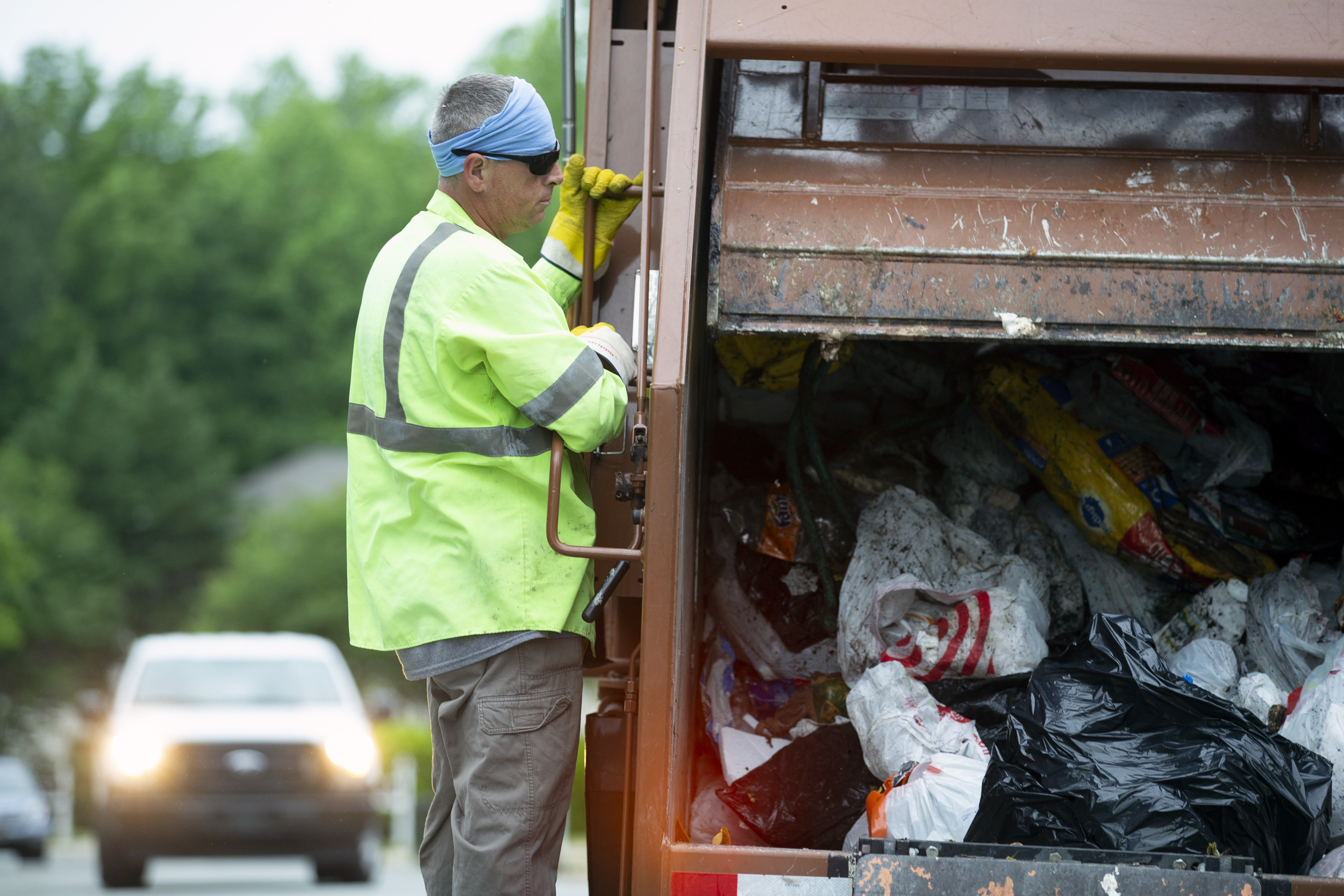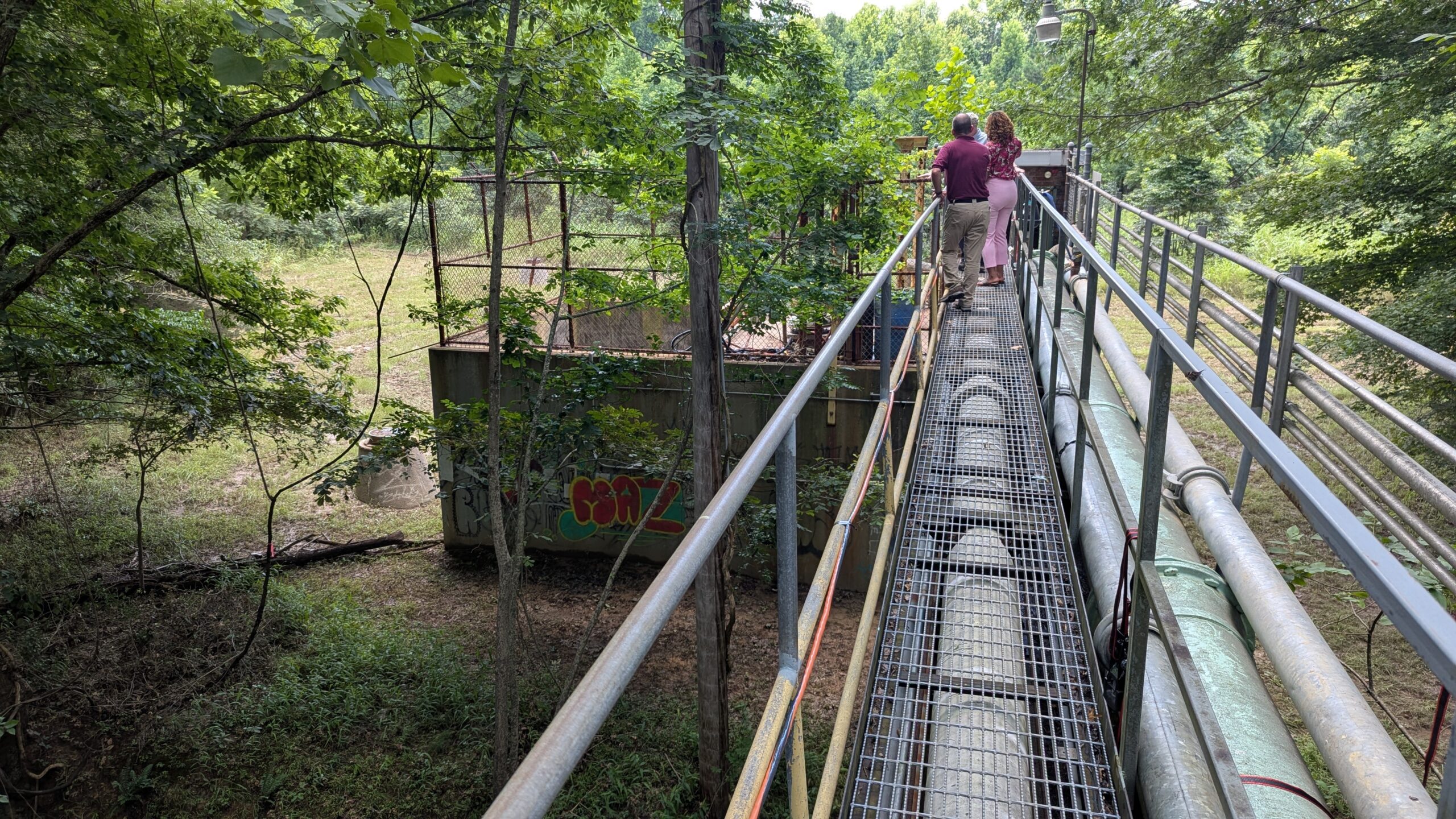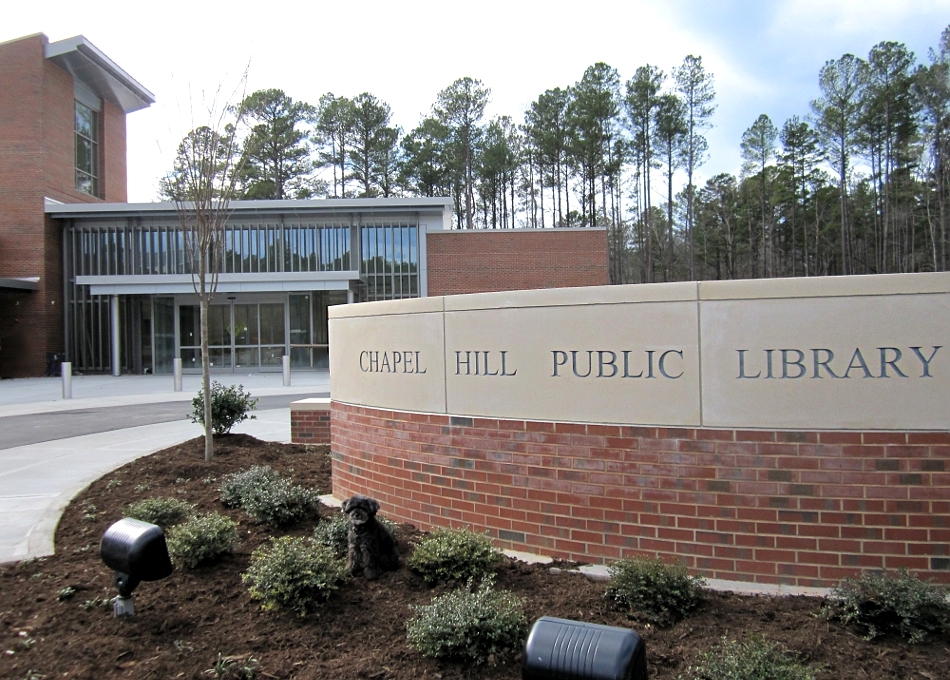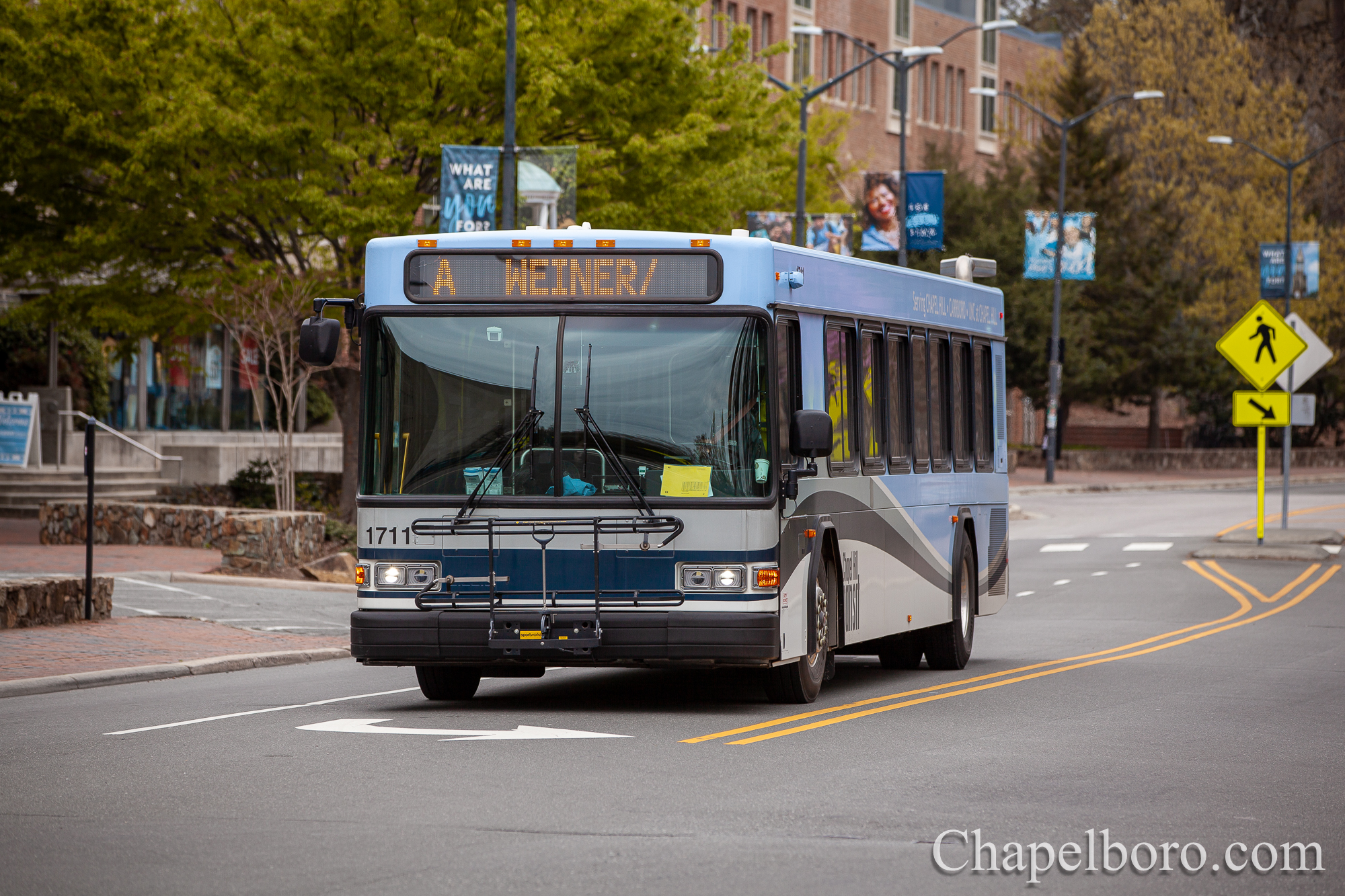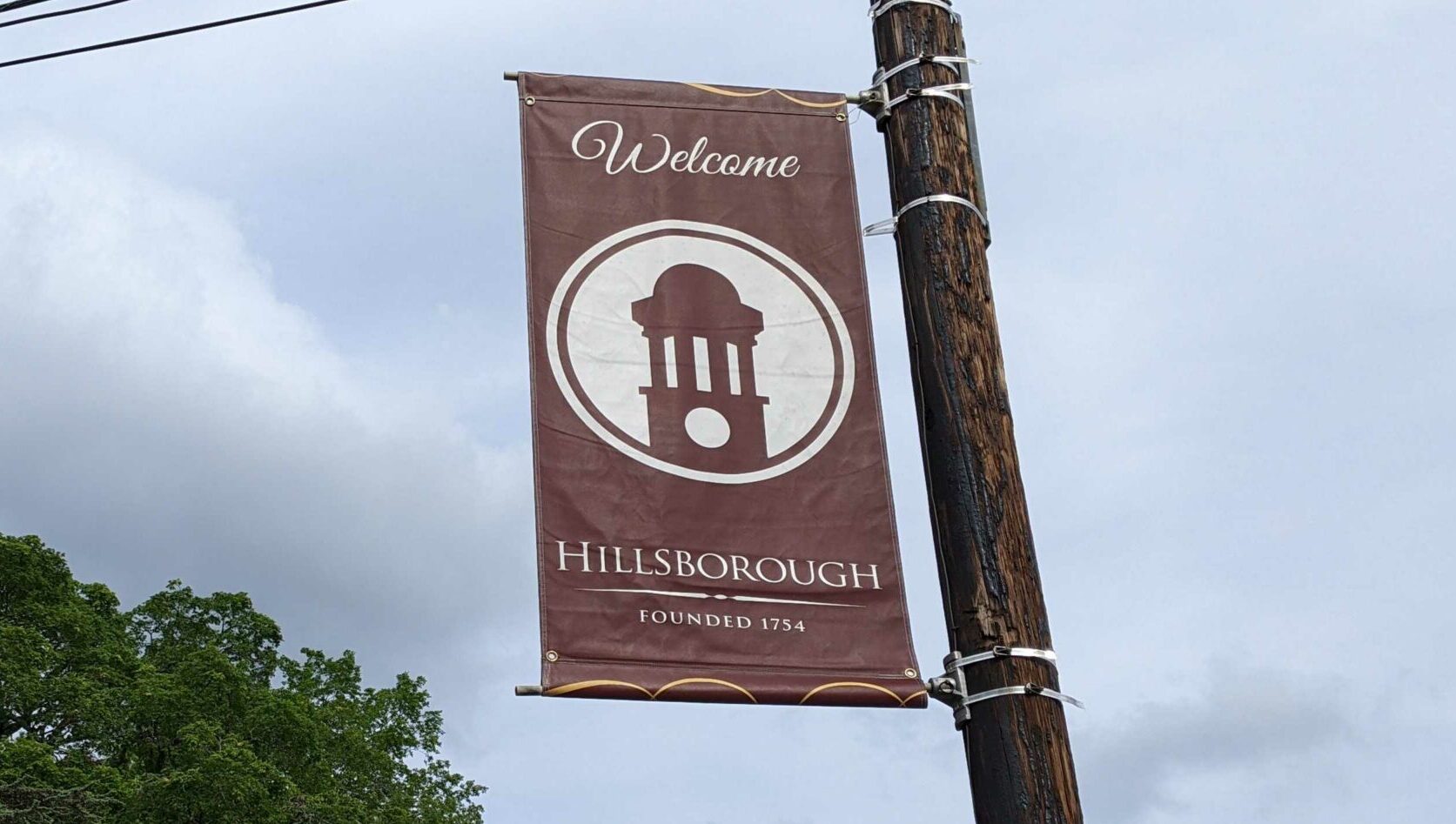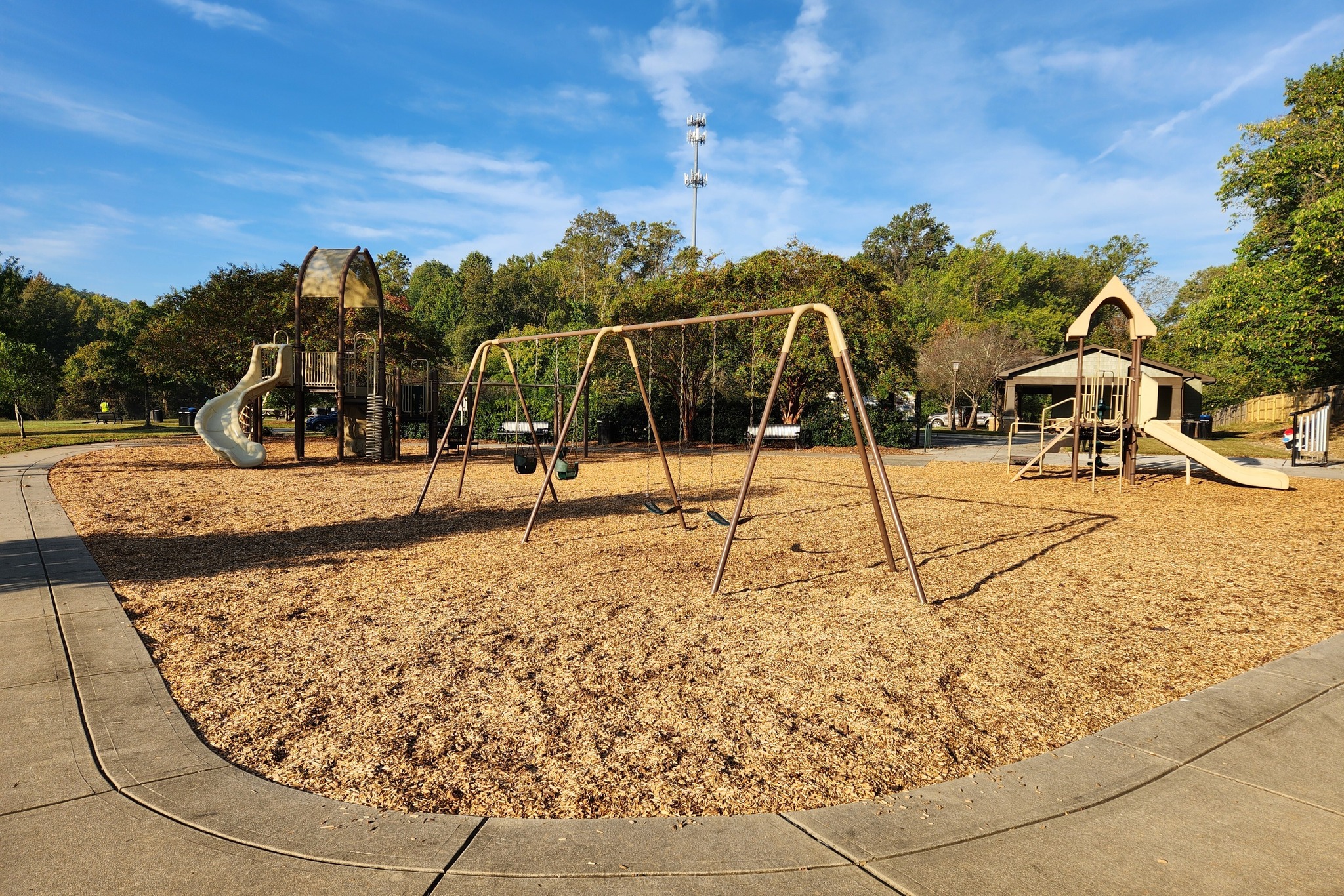For years, when people have walked or driven down West Queen Street in Hillsborough, they might have noticed vultures circling overhead. Or sitting on the ground. Or roosting on a roof. And not just one or two of the large birds, but sometimes dozens.
The omnivorous scavengers landed on the Hillsborough Board of Commissioners’ agenda last week as the town attempts to address the unusual situation — fueled by one neighbor’s fondness for the creatures and another neighbor’s irritation.
Michael Beanland, a resident of West Queen Street, requested the discussion after submitting a form to the town board detailing issues with “large, unnatural numbers” of black vultures surrounding his neighbor’s house, which he says consequentially creating challenges around his own property. Beanland, who has lived in the house with his family since 2020, said it became clear after they moved that the large kettle — a phrase for congregated vultures — was regularly present around the house of Ken and Linda Ostrand next door.
Beanland said his family has a cordial relationship with the Ostrands, which has been strained by the realization they attract the vultures with food and the committee of birds spilling over onto the Beanland’s yard and trees. He said when the neighbors have been away for extended periods, the groups have dissipated — only for them to eventually return. And when the vultures are there for extended periods, they tend to leave behind messes and a strong smell.
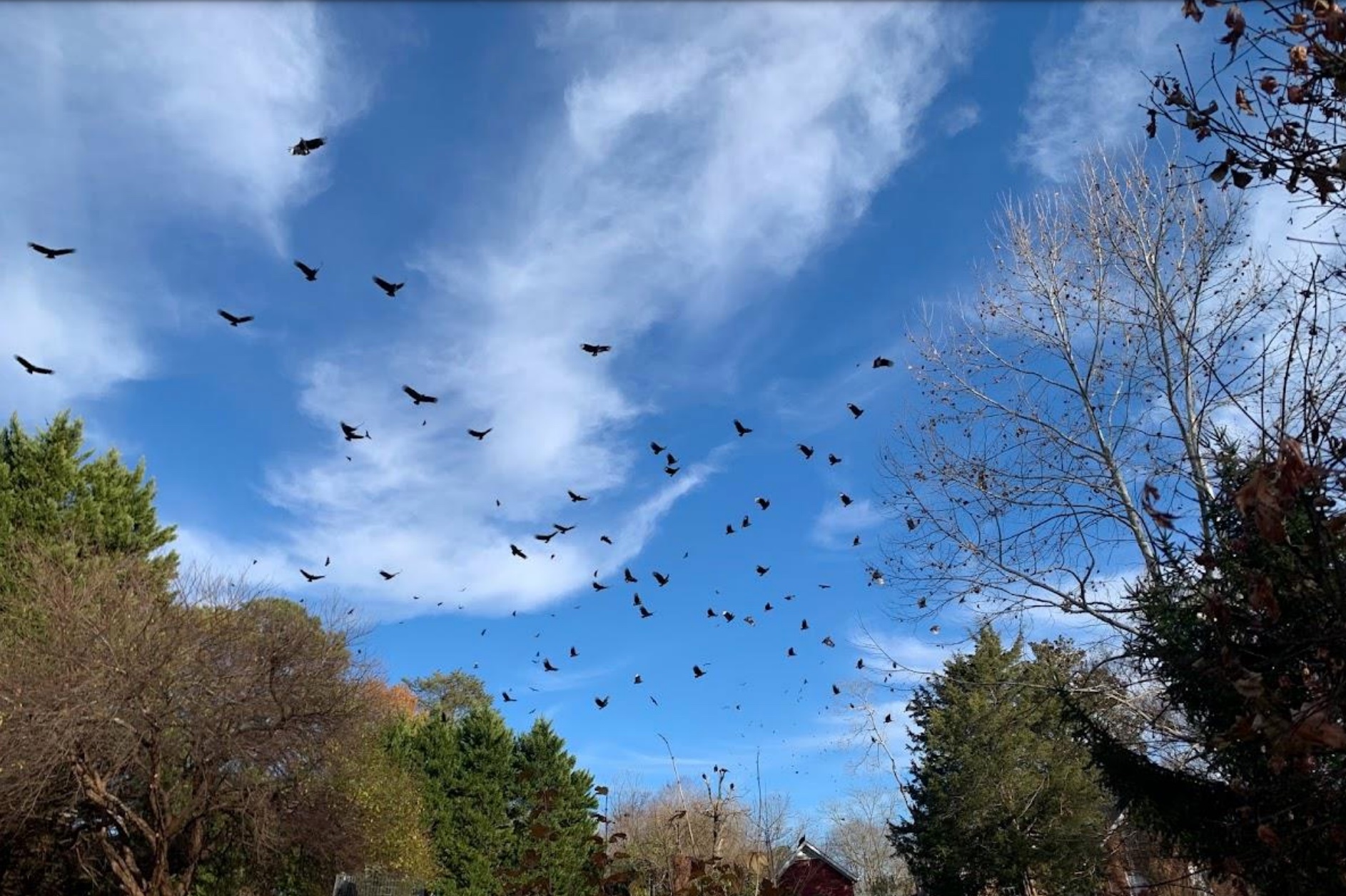
An undated photo submitted by Michael Beanland to the Town of Hillsborough to illustrate the amount of vultures that can come to West Queen Street, saying it is because his neighbor feeds them. (Photo via Michael Beanland.)
Beanland described a tipping point two years ago, when he had to dispose of multiple dead vultures found on his property — believing there was a connection to a bird flu epidemic reported at the time. He said he spoke with Ken Ostrand about it, pointing to the birds’ deaths as a sign to stop feeding them for the animals’ own safety. And while there was a stretch where fewer vultures showed up, it was not long before the gatherings began to revert to higher numbers.
“This has kind of been the pattern: we address it, we see a decrease in birds, and within weeks, the birds come back,” Beanland told the elected officials on Jan. 13. “That’s why we’re here today… we feel like we’ve addressed it enough. We’re asking the town and you [commissioners] to help us out.”
Ostrand did not attend last Monday’s board of commissioners meeting, but did speak with Chapelboro a few days later. As he describes it, he and his wife “inherited” the vultures from the woman they bought their house at 208 West Queen Street from in 2017. He admits to “occasionally” feeding the vultures in the earlier years of living at the residence by leaving out turkey carcasses, roadkill and food scraps, saying he came to enjoy the creatures’ size and learning facts about them. The experience also included creating a connection with one of the vultures who he noticed has a bad wing and struggles to fly long distances. Nicknamed “Morticia,” the Ostrands feed that bird directly, Ken says.
“Sometimes, when they see me feeding Morticia, they’ll come around,” he said of other black vultures. “But small, thin things… I picked up some deli meats the other day. I can toss them and she catches them out of the air, so there’s nothing for the other birds.
“Occasionally,” Ostrand added with a chuckle, “I feel sorry for them.”
Ostrand maintains he only had one conversation with Beanland about cutting back on feeding the birds — and that while he and his wife do still feed Morticia, he has not left out food for other vultures since the middle of December. He does leave water out for them, though, “almost every day” — but in his experience, people have provided more compliments than complaints about the big birds.
Beanland said beyond his frustration of Ostrand attracting the birds, their presence has soiled his property, citing their talons causing problems on his roof and excrement covering his driveway. He added that with two young children and a dog at home, there is concern about their coming into contact with bones or leftover parts from what the vultures are eating.
“Little meat trays, the supermarket trays that you get,” he described to the town board, “we often find those in our yard as the birds eat the meat from next door, bring them into our yard and leave the trays throughout the yard. Our dog will come back with bones from the yard — bones from, like, a t-bone steak [and] chicken bones.”
Ostrand acknowledges the vultures leave behind messes, and their droppings can build up and be unsightly during long periods between rain showers. But he points to the birds’ beneficial role in the ecosystem — and, legally, their protection under the U.S. Fish and Wildlife Service’s Migratory Birds Treaty Act — as reasons to not take significant steps to scare off or harm the creatures.
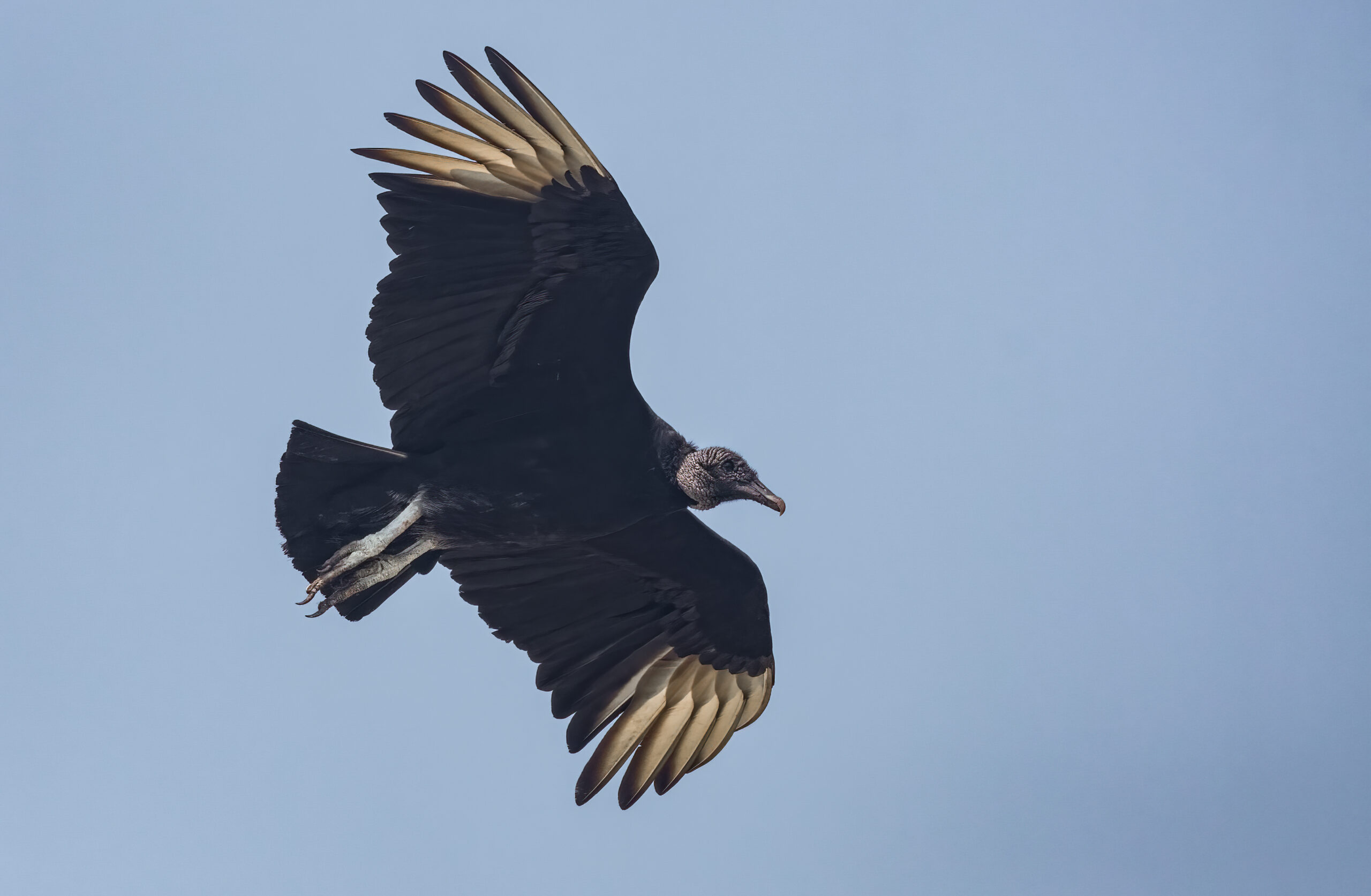
The Migratory Bird Treaty Act was first passed in 1918 as a method to limit the killing, capture, or sale of nearly 1,110 birds. Black vultures are on that list. (Photo via Norman Welsh/FOAR/Friends of Anahuac Refuge.)
During Tuesday’s meeting, however, the Hillsborough Board of Commissioners was in agreement that something must change, with Mayor Mark Bell describing it as an “untenable” situation for Beanland and other residents — especially, the mayor said, since there were prior complaints about the Ostrands’ proclivity for vultures in “a previous location” before their move to West Queen Street. As a result, the board asked town staff to explore language for an ordinance that could help put an end to the practice of feeding any larger animals in town.
Commissioner Evelyn Lloyd claims she used to live next to the Ostrands at their prior home, and once spent the night at their residence when her power went out. She said she remembers seeing “a nice spread” of fresh food “served on a platter” on the ground for the vultures, which they were eating. Lloyd added that, even then, she had heard other nearby residents’ concerns with the regular presence of the birds.
“I greatly sympathize with you, and I was fortunate,” said the town’s most senior elected official, clarifying the vultures did not make it to her property. “Being a pharmacist, I’m very aware of the health problems that these could bring.”
Commissioner Matt Hughes said this is an issue he also heard about “for several years” from community members. While he said hearing Ostrand’s commitment to stop feeding the vultures is “heartening,” he still advocated for regulation of feeding wildlife in order for the town to best provide uniform guidance and enforcement. Hughes mentioned his personal concerns of residents similarly feeding deer and encouraging the animals to be more brazen around people.
“I would still like some sort of ordinance where we can point to — just like [we have for] folks with dogs on leashes — to really discourage feeding wildlife,” he said. “I’m glad that as a few weeks ago [your dispute] may have resolved itself, but I think some sort of ordinance language might still be needed.”
During her comments, Commissioner Kathleen Ferguson pushed for town staff to open a dialogue with the U.S. Fish and Wildlife Service to potentially seek other options for dissuading or repelling the vultures. She agreed that such an ordinance makes sense, not just in this situation with vultures, but for other wildlife around town.
“It’s one thing [to be feeding] backyard birds, but…for all of the animals, it’s harmful for [them], it’s harmful for the interactions,” she said. “I hate hearing that you’re having this issue. When I’m out in the country, I love the vultures…they serve a great purpose. But what you’re living with, [Michael,] no one should.”
While town staff have been exploring ordinance options, they also are finalizing a Wildlife Resource Guide aimed to comprehensively tell residents what is and is not allowed regarding animals around town. Public Space and Sustainability Manager Stephanie Trueblood has taken the lead on the effort, as well as looking into the vultures on West Queen Street.
As described by Trueblood, a new ordinance or receiving permission to better shoo off the birds could help the town with their own issues with vultures about half a mile away from Ostrand and Beanland’s residences. Some of the birds like to roost at the Hillsborough Police station and scavenge through the department’s dumpsters, often sitting on the roof or patrol cars. Trueblood said the town has tried several strategies — mirrors, sticky pads, and contraptions — to scare off the birds to no avail. While new efforts to keep the dumpsters clean may help, she said the town is relatively limited on what it can try because of the vultures’ federally protected status.
Ostrand told Chapelboro he does not want his and Beanland’s differing thoughts on the black vultures to directly punish the birds — or other residents’ own experiences with the wildlife. He said he hopes whatever the Town of Hillsborough comes up with does not pick solely on one species and does not create any further friction between the community.
“I hate to see people dividing us between big birds and little birds, good birds and bad birds,” he said. “I mean, what’s next? The cats and the dogs?”
To watch the full Hillsborough Board of Commissioners meeting from Monday, Jan. 13, visit the town’s YouTube channel.
Chapelboro.com does not charge subscription fees, and you can directly support our efforts in local journalism here. Want more of what you see on Chapelboro? Let us bring free local news and community information to you by signing up for our newsletter.

